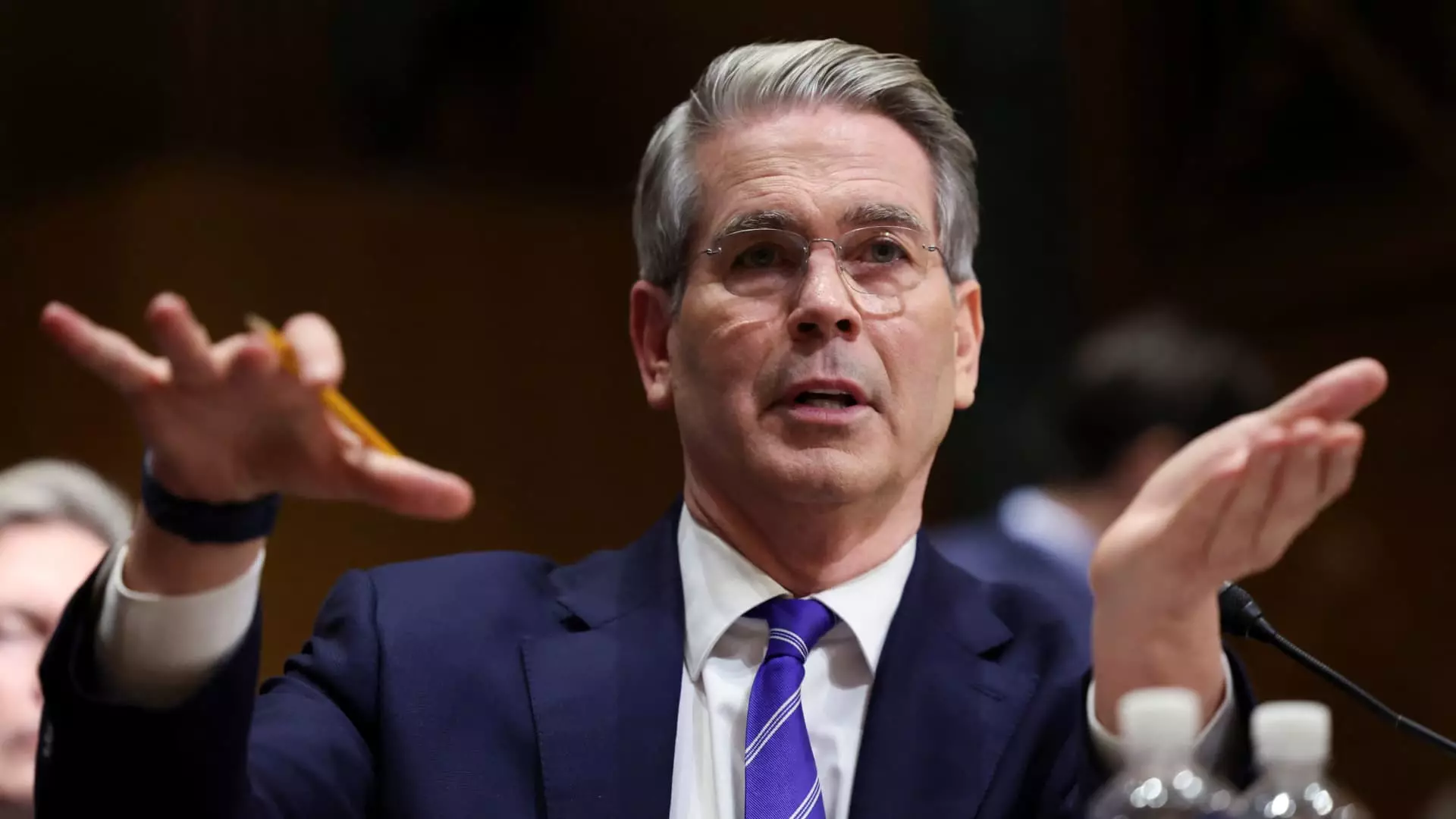As the specter of a trade war looms ever larger between the United States and China, Treasury Secretary Scott Bessent’s remarks resonate profoundly—suggesting that the U.S. holds a decisive advantage. His assertion that China is “playing with a pair of twos” starkly illustrates the precarious position of a nation proposing tariffs that disproportionately affect itself. It doesn’t take a seasoned economist to understand that when the scales of trade are tipped so heavily in one direction, the fallout from aggressive trade policies could spell disaster for the aggressor. In this context, it’s essential to scrutinize the implications of such rhetoric, not only for immediate economic realities but also for the broader geopolitical landscape.
Understanding the Tariff Trap
Bessent’s confident stance centers on the fabricated notion of an ‘us versus them’ mentality, which appears to dismiss the intricate global economy we inhabit. Yes, America may export less to China than vice versa, but that should not cause us to overlook the essential nuance—mutual interdependencies are what drives economic resilience. The current administration’s obsession with tariffs as a tool for negotiation is reminiscent of playing poker. While one might momentarily relish the thrill of bluffing, the long-term consequences of isolationist policies threaten more than just simple trade deficits; they risk damaging long-standing partnerships crucial for innovation and growth.
With the imposition of tariffs on products flowing from China, the hope is to coax foreign competitors to negotiate deals favorable to U.S. interests. But tarnishing relationships can lead to a spiral of retaliation. Countries such as Japan, eager to fill gaps created by a volatile Chinese market, may indeed come forward, yet does this strategic approach really foster genuine cooperation? Optics aside, reliance on punitive tariffs runs counter to the principles of collaborative trade. The educational notion of “bring jobs back to the U.S.” sounds alluring, yet history has shown that the consequences of trade wars all too often culminate in job losses and market uncertainty.
The Coupling of Tariffs and Economic Strategy
Bessent posits that tariff revenues could support domestic job creation—an alluring proposition, yet one that diverges from the reality of how economic incentives work. The metaphor of tariffs as a “melting ice cube” implies a transient solution: collect now, plan later. However, the urgency to generate immediate revenue must not overshadow long-term growth strategies. Instead of focusing on a revenue-generating wall built on tariffs, a more effective approach would be to invest in our workforce and industries—developing sustainable pathways for job development rather than temporary fixes.
As the psychological concept of loss aversion dictates, the implications of this trade war are not limited to economic figures. The American consumer will ultimately foot the bill through higher prices on goods subjected to tariffs. As corporations adjust to surging costs, the middle class—already beleaguered—will bear the brunt while the wealthiest continue to navigate loopholes. The long-term implications of these tariff policies may yield an illusion of profitability, but the dire consequences of inflated costs cannot be ignored.
The Vicious Cycle of Retaliation and Political Gamesmanship
While Bessent confidently declares that “everything is on the table,” we must grapple with the reality that this political environment is fraught with retaliation—China’s punitive measures against U.S. imports may evoke pathways toward further conflict, alienating potential allies. The backdrop of this unfolding drama offers a disheartening view of global trade, which must operate within the intricacies of fairness and equality, rather than under the shadows of aggression and manipulation.
The dangers extend beyond the economics of trade; they seep into broader diplomatic relations. The allure of aggressive negotiation tactics not only puts American interests at risk but positions the U.S. as a belligerent player on the global stage. Formulating a responsible and constructive trade policy should transcend the premise of dominance. Only through partnership and dialogue can nations address significant issues such as currency manipulation and unfair trade practices effectively.
In a world that craves stability and mutual advancement, the current policies threaten to unravel the economic interdependencies that have fostered growth over decades. The liberal tenets of cooperation and collaboration must guide our engagements moving forward, lest we plunge into an era marked not by trade wars, but by missed opportunities and damaged global relationships.


Leave a Reply